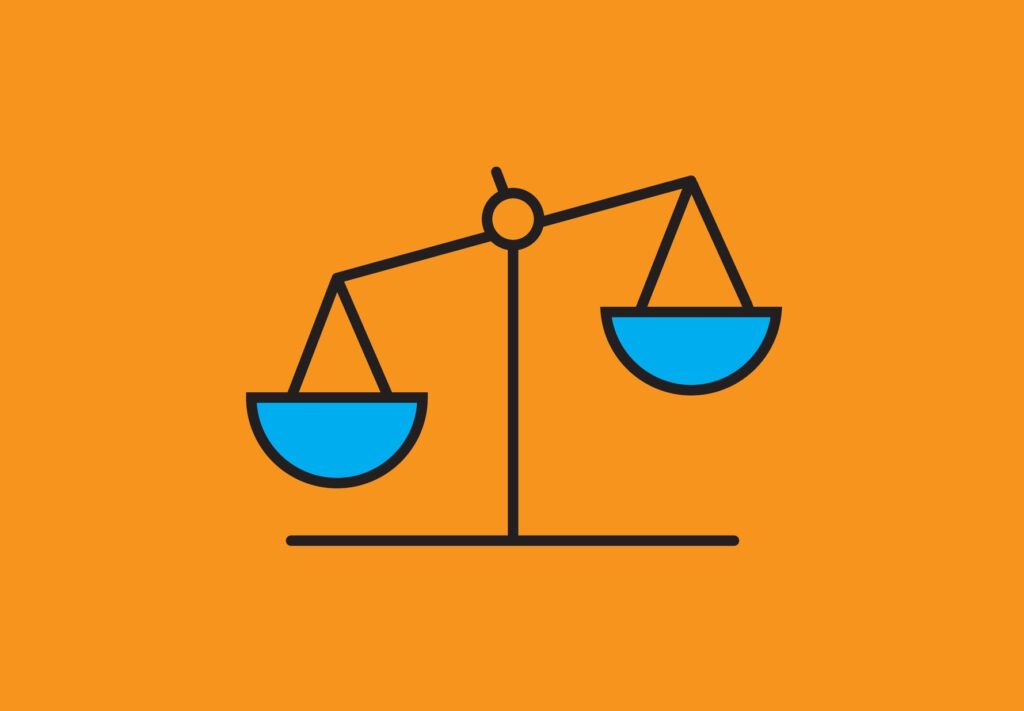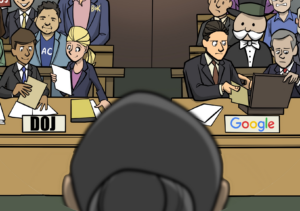In April, Google was found guilty of operating a monopoly over ad tech. Now it’s time for the fix-it phase.
On May 2, Judge Leonie Brinkema, who presided over the case, held a hearing in Alexandria, Virginia, where Google’s lawyers and attorneys from the Department of Justice convened to explore possible corrective measures to restore competition.
The trial portion of the remedies phase is officially scheduled to begin on September 22, which also happens to be the first day of Rosh Hashanah. (Oh well.)
At the hearing, the DOJ strongly advocated for a forced divesture of Google Ad Manager (GAM) as one way to break the exclusive tie that exists between Google’s ad server (DFP) and its ad exchange (AdX).
A breakup would be a multi-year process, however. And so, as a Phase One, the DOJ is also proposing a behavioral remedy that would give rival ad exchanges and ad servers real-time access to bidding data from AdX through Prebid. That means third-party vendors could participate in auctions on an equal footing with Google.
Google, unsurprisingly, strongly opposes a forced breakup.
But what about the other potential remedy involving making real-time bids available to competitors? Google’s actually down with that.
It’s time to behave
During the hearing, Karen Dunn, Google’s lead attorney, told the judge that Google would be willing to make real-time bid amounts from AdX available to all rival ad servers for open web display ads.
And in Google’s view, doing so would settle the claims against it.
In a statement, Lee-Anne Mulholland, Google’s VP of regulatory affairs, said: “Today, the DOJ conceded Google’s proposed ad tech remedy fully addresses the court’s decision on liability.”
Meanwhile, “the DOJ’s additional proposals to force a divestiture of our ad tech tools go well beyond the court’s findings, have no basis in law and would harm publishers and advertisers,” Mulholland added.
Google is also offering to deprecate unified pricing rules (UPR) for open web display ads. Unified pricing rules were introduced by Google in 2019 ostensibly to simplify how ads are priced and managed within Google’s ad stack.
But UPR also required publishers using GAM to have the same minimum price floor across all exchanges, which meant they could no longer set different prices for different buyers.
There was a ton of backlash from publishers against unified pricing rules at the time, and UPR was a main topic of debate during the trial. Google claims that UPR increases transparency and maximizes revenue for publishers by encouraging higher bids for inventory.
Beyond sharing real-time bid info and getting rid of UPR as remedies, Google’s lawyers also told Judge Brinkema that the company would commit to never reintroducing its first-look or last-look advantage for open web display ad auctions.
Just the beginning
Google may believe its proposed remedies should satisfy the court – but the DOJ doesn’t quite see it that way.
“Behavioral remedies are not sufficient because you can’t prevent Google from finding a new way to dominate,” Julia Tarver Wood, a senior DOJ attorney, told the court, according to a report by Agence France-Presse.
So, the government still plans to push for a breakup, and Google will still appeal the court’s decision. Google can’t appeal, however, until the remedies phase is over.
In terms of what’s next, the DOJ and Google will spend the next roughly five months getting ready for the remedies trial to kick off on September 22.
Factual discovery – which is the legal process where evidence and information about the facts of a case are exchanged between parties before trial – will begin immediately.
Detailed write-ups from each party about the proposed remedies they discussed during the hearing on Friday are due to the court by Monday, May 5.















